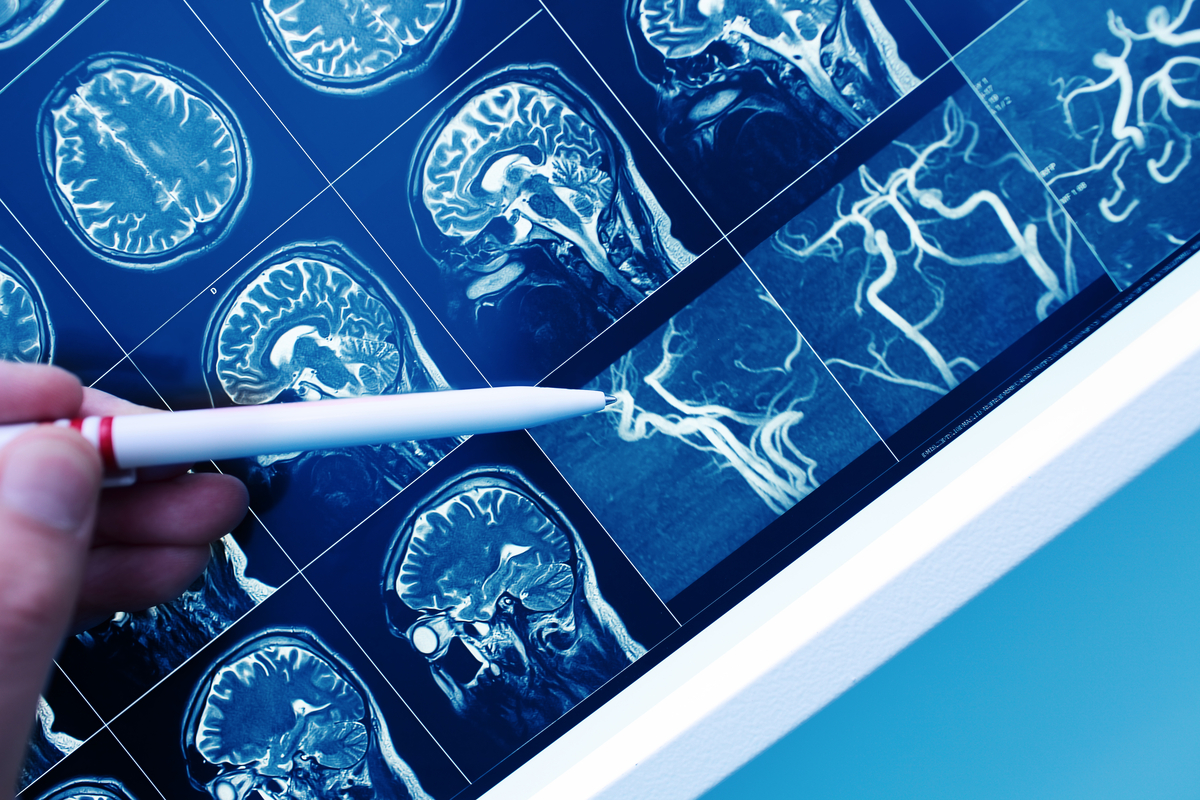Vascular dementia can lead to memory loss and difficulty with thinking and problem solving, greatly impacting the lives of those affected. It is caused by reduced blood flow to the brain, such as what happens during a stroke. Thankfully, there are things you can do to lower your risk of getting vascular dementia and a heart screen can help identify if you are at risk.
What is vascular dementia?
Vascular dementia is the second most common form of dementia and affects an estimated 150,000 people in the UK.
The word ‘dementia’ covers a range of symptoms that impact daily life and can include memory loss and difficulty with thinking, problem solving and language. With vascular dementia, these symptoms appear due to brain damage caused by a reduced supply of blood to brain cells.
“For the brain to function properly, its cells need a constant supply of blood enriched with oxygen and nutrients. This is delivered by a network of blood vessels in the brain called the vascular system,” explains our consultant cardiologist, Dr Georgios Karagiannis.
“When the vascular system is diseased or damaged, blood can leak out or be blocked from flowing to where it is needed. When this happens, oxygen and nutrients are not delivered to the brain cells and they eventually die.”
Common symptoms of vascular dementia can include slowness of thought, problems concentrating, changes to mood, personality or behaviour, feeling disoriented or confused, and difficulty with walking and balance.
What causes vascular dementia?

Vascular dementia happens when blood vessels in the brain become narrowed or blocked.
“There are different ways in which the flow of blood around the brain can be reduced or blocked, resulting in different types of vascular dementia,” explains Dr Karagiannis.
Stroke-related dementia
A stroke happens when the blood supply to a part of the brain is suddenly stopped. This can be due to blood vessels in the brain becoming narrowed or blocked by a clot. If someone has cognitive problems after a stroke, they may be diagnosed with ‘post-stroke dementia’ or ‘single infarct dementia’.
Not everyone that has a stroke will develop post-stroke dementia, but about 1 in 5 people who have a stroke will develop vascular dementia within the following 6 months. People that suffer from a stroke are also at an increased risk of further strokes, making the risk of getting vascular dementia higher.
Sometimes, vascular dementia may be caused by many small strokes that are temporary in nature, called ‘transient ischaemic attacks’. These mini strokes can be so small that a person doesn’t experience any symptoms, or they experience symptoms that last between a few minutes and less than 24 hours – as the blockage clears itself. However, even though temporary, the brain can be left with small but widespread damage leading to what is known as ‘multi-infarct dementia’.
Subcortical dementia
Subcortical dementia is thought to be the most common type of vascular dementia. It happens when very small blood vessels deep within the brain develop thick walls and become stiff and narrowed, causing a reduction in blood flowing through them. This causes damage to the bundles of nerve fibres that carry signals around the brain, leading to symptoms of dementia.
How can I reduce my risk of getting vascular dementia?

A healthy lifestyle, including a heart-healthy diet is a key part of preventing vascular dementia.
“Vascular dementia is an age-related condition that rarely affects people under 65. However, stroke-related vascular dementia shares the same risk factors of stroke and people can work to reduce their risk of having one,” explains Dr Karagiannis.
Stroke risk factors include:
- high blood pressure (hypertension)
- smoking
- an unhealthy diet
- lack of exercise
- high blood cholesterol
- being overweight or obese
- having diabetes
- atrial fibrillation – a type of irregular heartbeat (an arrhythmia).
Everyone can work to reduce their risk of vascular dementia by leading an active, healthy lifestyle and stopping smoking. Even regular walking can help.
For those with high blood pressure or cholesterol, it is important for patients to take their medication as indicated by their doctor and have regular check-ups to ensure their condition is controlled.
If patients are experiencing symptoms of an irregular heartbeat, such as a pounding or fluttering sensation in the chest or feeling tired, dizzy and breathless, this can be a sign of a condition called atrial fibrillation. This condition can make the chances of getting a stroke more likely. However, atrial fibrillation can be quickly diagnosed and treated at our hospitals to prevent this from happening.
Getting your heart checked

A heart screen can help identify any underlying heart problems.
Our heart screening clinic enables you to get a better picture of your heart health, including whether you might be at an increased risk of a stroke or if you might have a heart rhythm problem like atrial fibrillation.
With all our heart screening packages, you will receive a personalised assessment with a cardiac nurse which includes a full analysis of your bloods to determine if you have high cholesterol and an ECG which measures the electrical activity of your heart.
You will also receive a summary report with expert advice on managing risks to your heart and any heart problems identified. All our summary reports are reviewed by our consultants regardless of the package selected, for added peace of mind.
Depending on the package selected, you can also receive a one-to-one consultation with one of our cardiology specialists.
Related content
-
Hypertension (high blood pressure)
Hypertension (high blood pressure) occurs when your blood pressure readings are consistently high - 140/90 or higher.
-
Atrial fibrillation
Atrial fibrillation is a heart rhythm disorder where your heart beats irregularly, either too fast or too slow. Learn about how our cardiology specialists can treat it.
